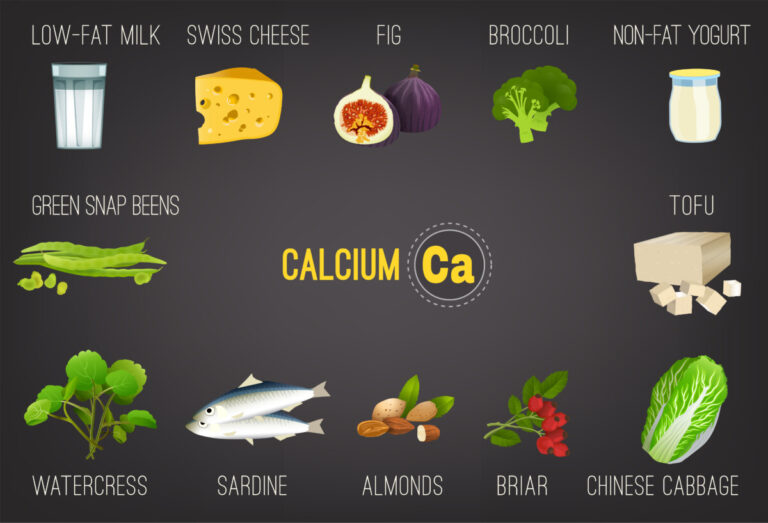Obesity is a complex disease that affects more and more people every day. It’s not just a body image problem, it’s a medical condition that can lead to serious illness if left untreated.
The fact is that some people are genetically predisposed to this condition, but for others, years of malnutrition and a sedentary lifestyle can be the cause of excessive weight gain.
What is obesity?
Often obese people lose weight only to unfortunately regain it after a few years. However, with the right combination of treatments, weight loss is possible for obese people, and some of them have managed to lose weight and maintain it.
Causes and symptoms of obesity
Obesity can be seen as a disease closely related to food intake and exercise, although it can also be caused by certain medical conditions. Here are some of the main causes of obesity:
Diet
Eating foods that are high in energy density, such as bread, pasta, baked goods, and fast food, can lead to obesity if eaten frequently and over a long period.

Avoiding healthy foods like fiber-rich fruits, whole grains, and green leafy vegetables can not only wreak havoc on your digestive system, but also lead to weight gain.
Health Status
Certain health conditions can lead to weight gain. These conditions include: polycystic ovary syndrome, Prader-Willi syndrome, Cushing’s syndrome, hypothyroidism, and osteoarthritis.
Emotional Eating
Emotional eating is overeating in response to negative emotions such as stress, boredom, anger, or frustration. About 30% of overweight people report that they have problems with overeating.
Genetics
About 400 genes are thought to contribute to being overweight or obese.
These genes can influence factors such as appetite, metabolism, food cravings, satiety, emotional eating, and body fat distribution. The genetic influence can vary from person to person and can range from 25% to 80%.
Meal frequency
In fact, how often you eat affects weight gain. Overweight people tend to eat less frequently than normal weight people. Studies show that those who eat small meals four or five times a day have lower cholesterol levels and more stable blood sugar levels than people who only eat two or three times a day.
Sleep habits
Lack of sleep can cause hormonal changes in the body and affect hunger and appetite. Lack of sleep for an extended period can seriously affect your metabolism and set you up for weight gain.
How to know if you are obese? Here are a few key symptoms to look out for:
- Shortness of breath.
- Snoring or sleep apnea
- Unable to engage in physical activity.
- Excessive sweating.
- Fatigue.
- Pain in the back and joints.
- Hormonal imbalance (irregular periods, mood swings, etc.).
- Skin and hair problems.
- Lack of confidence and low self-esteem.
- Feeling of loneliness.
How is obesity diagnosed?
Your doctor can diagnose obesity in several ways. Here are some of the most common diagnostic tests and examinations that can help identify this condition in a person:
Physical examination
Through a physical exam (by checking your heart rate, blood pressure, and temperature, as well as checking your heart, lungs, and abdomen), your doctor can determine if you are overweight or obese.
BMI calculation
The biggest marker that can indicate obesity is body mass index. If your BMI is 30 or more, you can be sure that you are dealing with obesity.

Although BMI is one of the most common ways to measure obesity, it is not always accurate. BMI can’t tell the difference between bone mass, muscle mass, and body fat, so it’s hard to tell exactly if excess fat is a problem.
Waist measurement
Visceral fat accumulated around the waist can be measured to determine certain health risks associated with being obese and overweight.
A waist circumference of more than 89 centimeters for a woman and 100 centimeters for a man is above the normal size and should be considered a risk factor.
Blood tests
Some blood tests may be done to check cholesterol levels, liver function, fasting glucose, and thyroid levels. The results of these tests can be helpful in determining obesity.
Risks associated with obesity
Unfortunately, obesity can pose many risks to a person’s health. Some of these risks include:
Type 2 diabetes
Insulin is needed to lower blood sugar levels. Type 2 diabetes occurs when your cells cannot respond to insulin. In people with type 2 diabetes, too much glucose and sugar builds up in the bloodstream. This can cause health complications and even reduce the body’s ability to produce insulin.
Heart disease
Heart disease is a general term that refers to many different types of heart disease. Some of the other conditions include arrhythmia (irregular heartbeat), atherosclerosis (hardening of the arteries), cardiomyopathy (heart muscles harden or become weak), congenital heart disease (disorders of the heart from birth), coronary artery disease (caused by plaque buildup on the arteries of the heart), heart infection (infection caused by bacteria or parasites).
High blood pressure
Also known as hypertension. High blood pressure occurs when blood pressure is too high.

Being overweight can increase your heart rate and reduce your body’s ability to transport blood through your vessels, while higher pressure on artery walls increases blood pressure. This may be a precursor to a heart attack or stroke.
Certain types of cancer
Obesity can put a person at risk for certain types of cancer. These types include meningiomas (cancer in the tissue that covers the brain and spinal cord), thyroid, liver, gallbladder, upper stomach, pancreas, ovary, and kidneys. Breast cancer, colon cancer, and endometrial cancer are particularly associated with obesity and should be monitored if a person is considered obese.
Fatty liver disease
Also known as hepatic steatosis. Fatty liver disease occurs when fat accumulates in the liver over time.
Too much fat in the liver can cause inflammation, which can lead to scarring (liver fibrosis), which can lead to liver failure.
Sleep Apnea
Sleep apnea is a condition in which breathing stops several times during the night while sleeping. People with sleep apnea may feel tired during the day and wonder why. If left untreated, sleep apnea can cause complications such as diabetes, heart disease, and other serious conditions.
How to treat obesity?
Obesity is a complex condition, and its treatment can also be difficult. While treatment is not impossible, multiple treatments should often be applied at the same time for maximum success. There are several ways to treat obesity. Here are the best ways, according to doctors:
Diet modification
One of the first treatments involves eating. Eating fewer calories (500-1000 per day) can help with weight loss.

Eating foods that are low in fat and calories and high in nutrients can potentially restore a healthy balance to your body. However, it is rare for an obese person to successfully cope with this treatment alone. Often there is a tendency that after the transition to a low-calorie diet, weight is restored after about 2 years.
Exercise
Incorporate exercise into your daily routine to lose weight. Daily physical activity along with the right diet changes can even improve your metabolism and help your body manage weight more easily. Simple things like climbing stairs at work, walking while talking on the phone can make a big difference.
How to prevent obesity?
In the end, eating right and getting enough exercise is the best way to prevent obesity. Here are a few ways to prevent this condition:
Eat more “good” fats
Avoiding weight gain does not mean completely avoiding fat. In contrast, polyunsaturated fats, such as the omega-3 fatty acids found in salmon and nuts, may actually lower cholesterol levels and the risk of obesity.
Eat low glycemic foods
Eating low-glycemic foods that don’t cause blood sugar spikes, such as fruits, vegetables, whole grains, and lean proteins, can help regulate blood sugar levels and maintain a healthy body weight.
Exercise regularly
150 minutes of moderate aerobic exercise or 75 minutes of vigorous exercise each week are important for maintaining a healthy body weight. In addition to aerobic exercise, a resistance training regimen works your muscles and stimulates your metabolism for healthy weight loss.
Reduce stress
Stress can lead to the development of unhealthy eating patterns, such as emotional overeating and overeating at irregular times. When you’re feeling stressed, instead of reaching for a hamburger, try stress reduction techniques like deep breathing, yoga, or socializing.
Obesity differs from being simply overweight in that it has a higher risk factor for certain diseases, such as diabetes, heart disease, and fatty liver disease. Obesity can be caused by a variety of factors, including genetics, diet, physical activity, medications, and pre-existing medical conditions. Obesity symptoms can include shortness of breath, excessive sweating, and self-doubt.
















